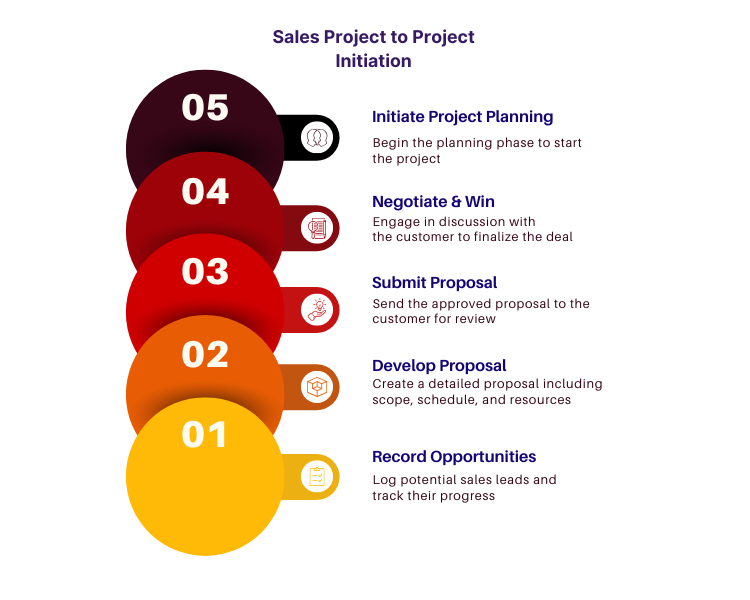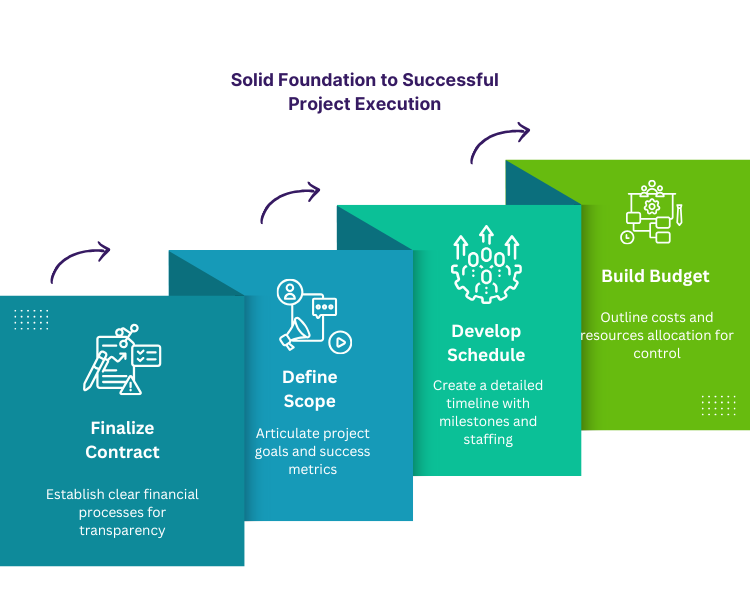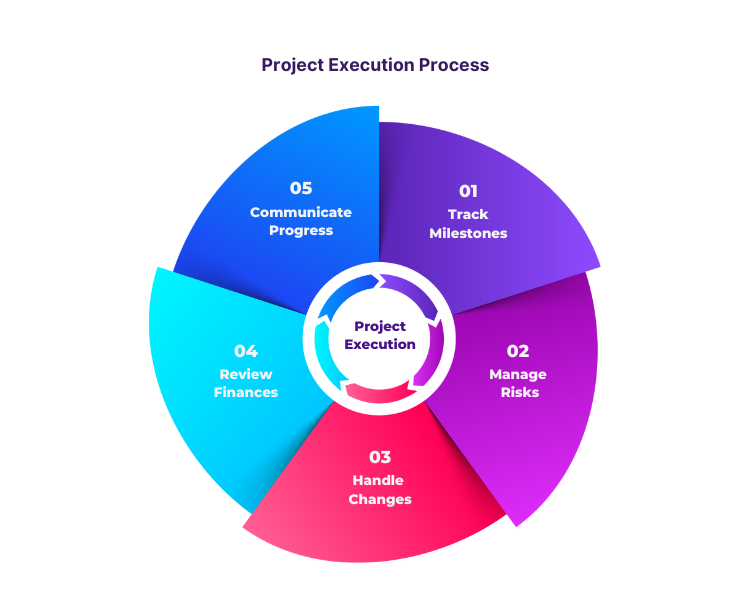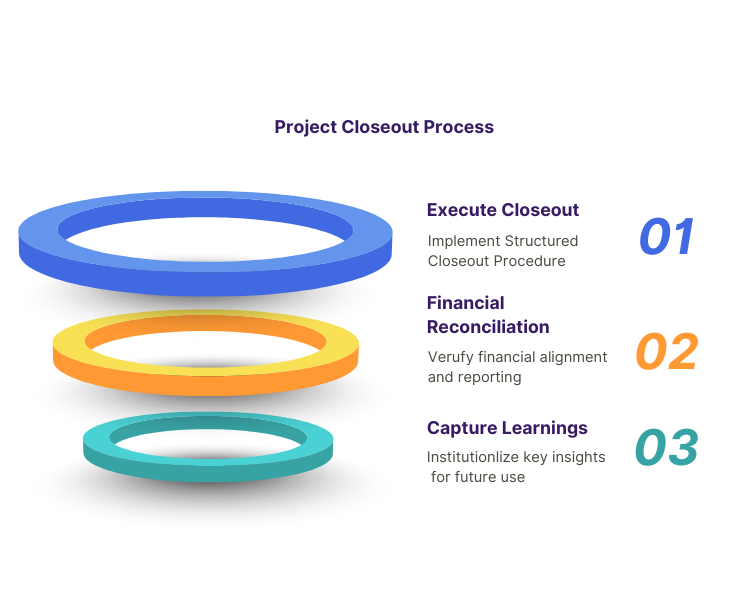Initiation phase
- Record sales opportunities and progress them through the sales stages.
- Initiate Proposal development when the opportunity gets to the right stage, Develop proposal (incl Scope, Schedule, Estimate and Resources) and submit for approval
- Submit approved proposals to customer and pursue the opportunity through negotiations and Win. Initiate project planning


Planning phase
- Finalize the contract and establish streamlined billing and revenue recognition processes to ensure transparency and financial clarity from day one.
- Develop a comprehensive project schedule that identifies key milestones and the critical path, while defining the initial staffing plan that supports efficient resource utilization throughout the project.
- Clearly articulate the project scope, expected deliverables, and success metrics (KPIs) to align stakeholders, manage expectations, and set the foundation for successful execution.
- Build a detailed project budget that outlines cost structures, resource allocations, and phased spending, enabling proactive cost control and accurate financial forecasting.
Execution phase
- Track the completion of key milestones or deliverables as per the contract terms, ensuring that work aligns with client expectations and internal budgets.
- Continuously monitor potential project risks (e.g., delays, cost overruns, regulatory issues) and track the effectiveness of mitigation strategies. Maintain a risk register and update it regularly to reflect emerging risks and mitigation actions.
- Track and manage any changes in scope, deliverables, or timelines. Ensure all change requests are properly documented, approved, and communicated to the client and internal teams. Assess impacts on budget and timeline.
- Regular Review of Revenue , Invoicing and Client Out Standing AR
- Keep internal and client stakeholders informed on project progress and financial status


Closeout phase
- Execute a structured, business-process–driven project closeout to ensure all contractual, financial, and operational obligations are fully completed.
- Conduct final financial reconciliation, including revenue, cost, and margin reporting, to confirm alignment with planned budgets and forecasts and to support accurate organizational financial performance tracking.
- Capture and institutionalize key learnings by updating risk libraries, project templates, reporting frameworks, and best-practice playbooks—strengthening continuous improvement and enhancing the success of future engagements.
